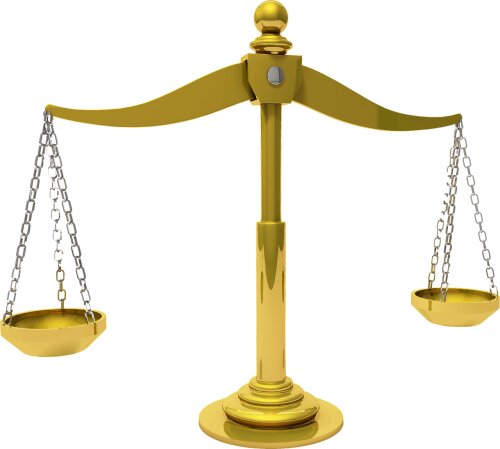Best Lawyers in Mthatha
Share your needs with us, get contacted by law firms.
Free. Takes 2 min.
List of the best lawyers in Mthatha, South Africa
South Africa Legal Questions answered by Lawyers
Browse our 36 legal questions in South Africa and read the lawyer answers, or ask your own questions for free.
- Family dispute
- Im asking on behalf of my parents. My grandmother had terminal brain cancer and before she fell completely ill she sold her house and gave my mother power of attorney. The money from the house was paid into my grandmother's account. That money went to any expenses my grandmother had... Read more →
-
Lawyer answer by Ascendance International Consulting (A-I-C)
Thank you for sharing the details of your situation. It sounds like your mother acted in a responsible manner by using the funds for your grandmother’s care and medical expenses, which is a common use of power of attorney. That...
Read full answer - If someone in a hearing wrote things on a document and made a booklet for everyone to see and defamed my character so HR and managers can see
- I, [name removed], was called for a dismissal hearing but a booklet of documents was compiled and there was a document typed out that stated "please help her she is not mentally stable and has a small boy to care for and didn’t have any family in Bloemfontein, she (me)... Read more →
-
Lawyer answer by Ascendance International Consulting (A-I-C)
In South Africa an employer’s written statement that you “are not mentally stable” and that “pills will not help you” can be used to justify dismissal, but the Labour Relations Act (Act 66 of 1995) and the Code of Good...
Read full answer - Can I open a civil lawsuit against someone for defamation of character and do I have enough evidence?
- Good afternoon, I have been involved in a family dispute since last year November, claiming I have disrespected someone within the family (to my knowledge, I have not) and no one is willing to tell me what it is that I supposedly did. In the meantime, I have been called... Read more →
-
Lawyer answer by Ascendance International Consulting (A-I-C)
In most jurisdictions a defamation claim can succeed only if (1) a false statement of fact about you was communicated to at least one third‑party, (2) the statement was “published” (i.e., shown to others in the WhatsApp family group counts...
Read full answer
South Africa Legal Articles
Browse our 23 legal articles in South Africa written by expert lawyers.
- Managing Import Tariffs and Customs Disputes in South Africa
- Key Takeaways Managing import tariffs and resolving customs disputes in South Africa requires strict adherence to timelines and precise commodity classification. Navigating the South African Revenue Service (SARS) framework effectively protects businesses from costly delays and penalties. You have exactly 30 days to file a Notice of Objection against a... Read more →
- A Guide to Navigating Divorce Proceedings in South Africa
- Navigating Divorce Proceedings in South Africa Key Takeaways Ending a marriage in South Africa involves navigating specific legal channels, from deciding on child care to dividing assets based on your matrimonial property regime. Understanding the procedural differences between regional courts and the High Court can save you significant time, money,... Read more →
- Cross-Border Insolvency: Protecting Assets in South Africa
- Legal Framework: South Africa governs cross-border insolvency through the Cross-Border Insolvency Act 42 of 2000, which incorporates the UNCITRAL Model Law. Mandatory Recognition: Foreign liquidators or "representatives" have no standing to deal with South African assets until they obtain a formal recognition order from a South African High Court. COMI... Read more →
About Hiring a Lawyer in Mthatha, South Africa
Hiring a lawyer in Mthatha, South Africa, involves several key steps to ensure you find the right legal representation for your needs. Start by identifying the type of legal help you need, whether it's for personal injury, family law, business matters, or any other legal field. Research local law firms and individual lawyers, considering reviews, expertise, and their reputation in the community. It's vital to schedule initial consultations to discuss your case and evaluate whether their approach aligns with your expectations. During these consultations, inquire about their fees and payment structures to ensure they fit within your budget. Remember, clear communication and a sense of trust are crucial when selecting a lawyer to represent you.
Why You May Need a Lawyer
There are numerous scenarios where legal assistance may be necessary in Mthatha, South Africa. Common reasons include dealing with family law matters such as divorce, child custody, or maintenance disputes. Business owners may require legal advice on contract negotiations, employment law, or intellectual property issues. Additionally, individuals might seek legal help for property transactions, drafting wills, or tackling criminal charges. Law professionals are also essential in cases involving labor disputes or personal injury claims. Navigating the legal system without professional assistance can be daunting, highlighting the importance of obtaining a knowledgeable lawyer to guide you through the process.
Local Laws Overview
Mthatha operates under South African law, which is a hybrid system made up of Roman-Dutch civil law, English common law, customary law, and legislation. Key legal aspects particularly relevant to this area include land restitution, due to its unique history regarding land distribution, and customary law, especially concerning family and inheritance matters. Employment law is also significant, given the country’s focus on labor rights and protection. Additionally, understanding the National Credit Act can be crucial for both consumers and businesses, ensuring fair and responsible credit practices.
Frequently Asked Questions
How do I find a reputable lawyer in Mthatha?
Finding a reputable lawyer involves seeking recommendations, reading client reviews, and conducting thorough research on legal directories.
What should I bring to my first consultation with a lawyer?
Bring any relevant documents related to your case, a list of questions for your lawyer, and any notes that might help explain your situation.
How are lawyer fees structured in Mthatha?
Lawyer fees can vary, typically falling under fixed fees, hourly rates, or contingency fees; it’s important to discuss and understand the fee structure in advance.
Can I get legal aid in Mthatha?
Legal Aid South Africa provides assistance to those who qualify, based on income and the nature of the case.
What types of law firms are available in Mthatha?
Mthatha hosts a range of law firms from large, full-service firms to smaller, specialized practices focusing on specific areas of law.
What are my rights during legal proceedings in South Africa?
Individuals have the right to a fair trial, legal representation, and the ability to appeal in most legal circumstances.
What happens if I can't afford a lawyer?
For those unable to afford a lawyer, options include applying for legal aid or seeking assistance through pro bono services offered by some firms.
How can I verify a lawyer's credentials in Mthatha?
Check the lawyer's registration with the Legal Practice Council of South Africa to ensure they are licensed and in good standing.
What is the process for filing a lawsuit in Mthatha?
Filing a lawsuit typically starts with consulting a lawyer, drafting legal documents, and filing them with the local court, followed by serving papers to the opposing party.
Can I change lawyers if I am not satisfied?
You have the right to change your lawyer if you’re unsatisfied, but it's advisable to handle the transition seamlessly to avoid disruptions in your legal proceedings.
Additional Resources
For those seeking additional help, consider reaching out to Legal Aid South Africa or the South African Human Rights Commission for support. The Legal Practice Council can provide information on registered legal professionals. Additionally, the Department of Justice and Constitutional Development offers resources and contact information for legal matters.
Next Steps
If you require legal assistance in Mthatha, begin by identifying your legal needs and compiling relevant information about your case. Research potential lawyers or law firms, and schedule consultations to meet with them. Clarify all fee arrangements before beginning any legal work. Finally, ensure ongoing communication with your lawyer to stay informed and involved in the process. By following these steps, you'll be better prepared to navigate the legal landscape in Mthatha effectively.
Lawzana helps you find the best lawyers and law firms in Mthatha through a curated and pre-screened list of qualified legal professionals. Our platform offers rankings and detailed profiles of attorneys and law firms, allowing you to compare based on practice areas, experience, and client feedback.
Each profile includes a description of the firm's areas of practice, client reviews, team members and partners, year of establishment, spoken languages, office locations, contact information, social media presence, and any published articles or resources. Most firms on our platform speak English and are experienced in both local and international legal matters.
Get a quote from top-rated law firms in Mthatha, South Africa — quickly, securely, and without unnecessary hassle.
Disclaimer:
The information provided on this page is for general informational purposes only and does not constitute legal advice. While we strive to ensure the accuracy and relevance of the content, legal information may change over time, and interpretations of the law can vary. You should always consult with a qualified legal professional for advice specific to your situation.
We disclaim all liability for actions taken or not taken based on the content of this page. If you believe any information is incorrect or outdated, please contact us, and we will review and update it where appropriate.
Refine your search by selecting a practice area.





























